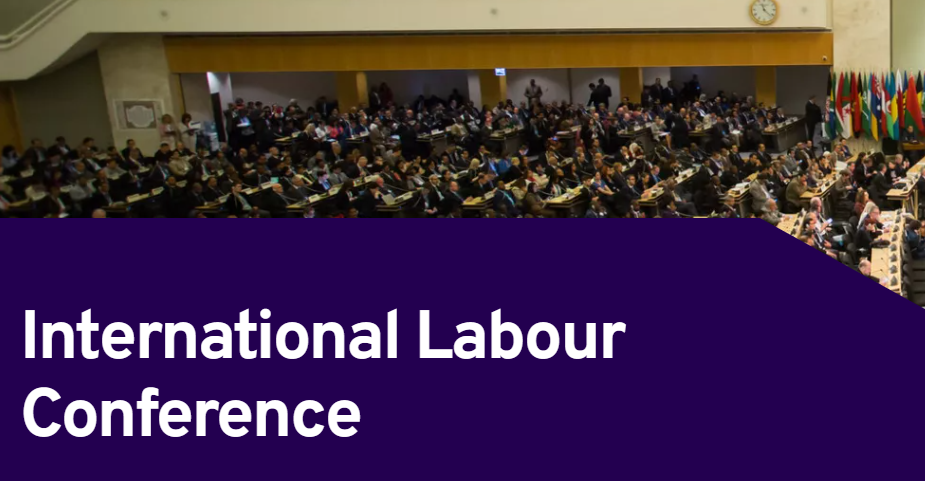
[Check against delivery]
A duty to democracy: governments' obligation to promote collective bargaining
President,
Director General,
Distinguished delegates,
Collective bargaining is a pillar of a just society. Without it, working people are left defenceless, exposed to the full force of unregulated markets, with no shield, no say, and no power.
Convention 98 is clear: governments must actively promote collective bargaining. Yet, as the ITUC Global Rights Index highlights a troubling erosion of bargaining coverage, with fewer than half of all workers covered in many countries in Europe.
The ILO has ruled that promotion requires positive action – creating legal frameworks, removing obstacles, and fostering an environment where collective bargaining can flourish. When governments fail to promote collective bargaining, they abandon their fundamental duty to ensure workers have a say.
When Member States prioritise individual contracts over collective agreements, when they weaken trade union rights, when they refuse trade union demands to extend collective agreements to entire sectors, they violate their obligations.
When Member States claim doing nothing is neutrality in industrial relations systems, they are in fact actively favouring non-union companies. These businesses gain unfair advantage through lower labour costs and weaker protections subsidised by government inaction, which penalizes responsible employers who engage in genuine collective bargaining. Instead, true neutrality means to level the playing field ensuring all workers have access to collective representation.
Member states can act decisively to remove obstacles to collective bargaining, for example public procurement rules can promote collective bargaining, end exploitation and ensure fair competition so that companies with a collective agreement do not lose out to competitors with low wages and conditions based on union-busting.
Promoting collective bargaining is at the heart of the 2022 Minimum Wage Directive currently challenged in front of the European Court of Justice. The court must also respect ILO conventions when interpreting EU law, rather than putting economic freedoms before fundamental labour rights.
This means the Court must change course and recognise that, as ILO conventions provide, collective bargaining cannot be labelled as an unlawful barrier to trade, or an illegal barrier to competition. EU institutions cannot claim commitment to decent work while their highest court systematically weakens the very mechanisms that underpin it.
But let us be clear: the primary obligation for promotion rests with Member States. They must provide institutional support and reverse the decline. In the EU, this means working with the Social Partners to put in place an action plan to reach the target of at least 80% of the workforce covered by a collective agreement.
Delegates, collective bargaining transforms individual vulnerability into collective strength through solidarity.
It is the ILO vision realized with workers united across borders, industries, and differences. Decent work emerges when people stand together in dignity and mutual support.
Countries that meet their obligation to promote collective bargaining will build more cohesive societies, more productive economies, and more sustainable futures.
And the EU Quality Jobs Roadmap at the end of this year must be based on guaranteeing the fundamental right to collective bargaining: a quality job means a job with a collective agreement.
As the Director General refers in his report, turbulent times and persistent inequalities need institutions that ensure workers have a real say in shaping change.
Those that fail will leave their workers vulnerable and their democracies weakened.
The obligations are clear, and the time for promoting collective bargaining is now.
The obligations are clear, and the time for promoting collective bargaining is now.
